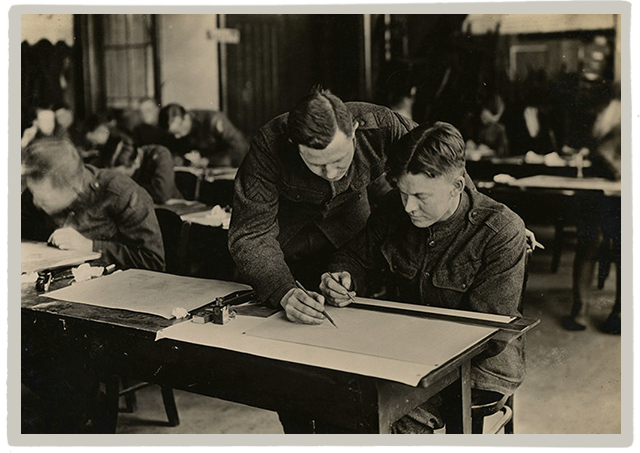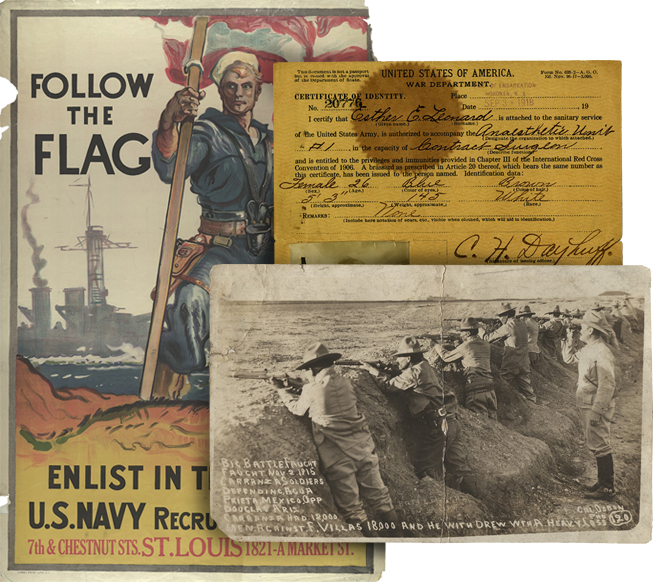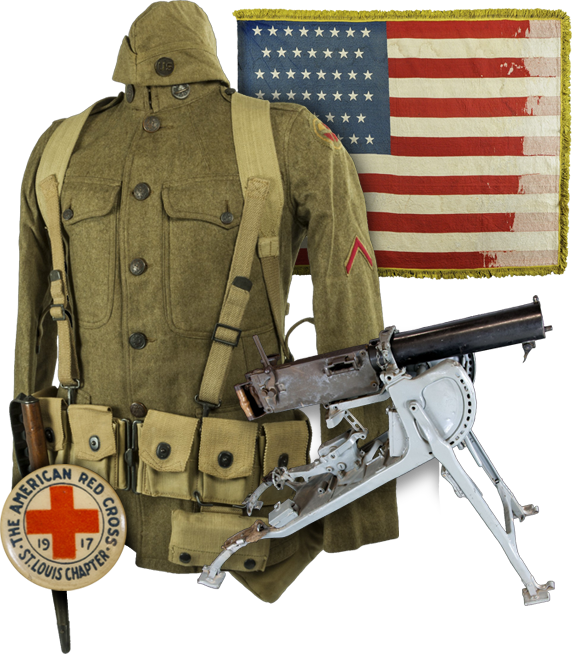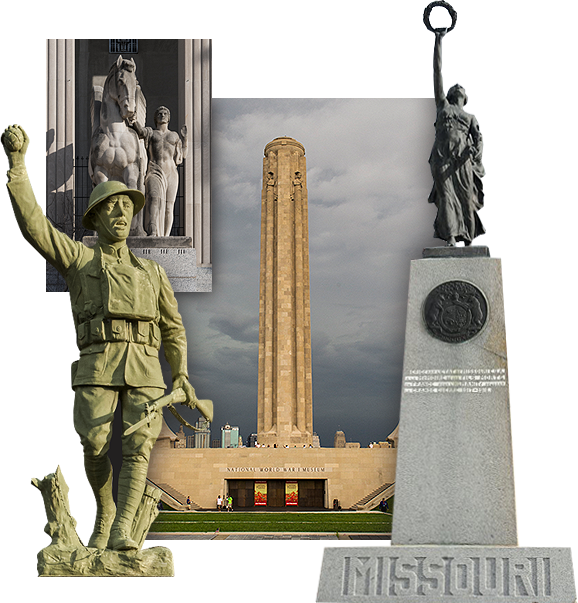Champ Clark letter to Bennett Champ Clark - November 2, 1917

Transcript
Bowling Green, Missouri, November 2, 1917. Lieutenant Colonel Bennett C. Clark, 140th U. S. Infantry, Camp Doniphan, Fort Sill, Oklahoma. My dear Bennett: Some days ago we sent you a fine warm comfort. I hope you have it by this time. Sent it by parcel post insured. Please let me know if you got it. I have been resting up since I got here, sleeping twelve or thirteen hours a day. We have plenty of good grub. I feel a great deal better than I did when I got home. I have not been working any except to try to keep up with the mail which is voluminous, and people come in to see about exemptions, etc. and so on. Judge John B. Harris of Fulton was here today to see about his son, who is a sugar expert. He wants him exempted. Buck Holliday was up again this morning to see about his son Shannon. It is something terrific about the Italians losing 180,000 men. It makes me sick at the stomach. It means that two hundred and fifty thousand more of our men will have to go more than anybody ex-

Transcript
[page 2] pected, maybe a half a million, for the chances are that Italy will make a separate peace with Germany, especially if the Germans overcome the plains of Italy. Everybody inquires very kindly about you. I am trying to get Orson Lee a chance to get to where he ought to be, in the electrical department of the army. Yesterday I paid my taxes and your mother’s taxes and your taxes. I paid two years of your taxes to the city and Squire Omohundro has issued you a new policy on your stuff and I will pay that and take care of it. The weather is very cold here, although it has been clear as a crystal ever since Tuesday. At 2.30 P.M. Sunday I am going to make a speech at the Opera House. Your mother got here Monday and is all right. She is going over to Fulton today and then she is going to Colorado to see Mrs. Pitzer. I think I will leave here Monday or Tuesday, as Bassford writes me that the business is piling up there to beat the band; that he answers all that he can but that there are a good many that he don’t know how to answer. I got a telegram from Senator Blackburn saying that the Lincoln Memorial Commission

Transcript
[page 3] would meet next week, on the 9th, I think it is, and as I am a member of it, he wanted me to be there. Hope you will take as good care of yourself as possible. W. T. Burke is very sick. It was reported at one time that he was dead, but Charley Davis, the County Clerk, said he came by the next morning to help lay him out and found him sitting up in bed reading his bank book. Quite a sudden recovery. Last night the Elders of the Campbellite Church, of which I am one, met in Cash Wenkle’s bank to select a preacher. I announced as soon as I got to town and found that they were going to select one, that I was for Pinkerton, so we met last night and Pinkerton met with us and we extended him a unanimous call, and he declined very reluctantly to accept it on the ground that it took $2400 a year for him to get along; that seven or eight hundred had to be devoted to paying the interest on his debts and life insurance, and as it is certain that the Church can not raise over $1500 for a preacher, and it is doubtful whether it can do that since Mayhall and Snyder died, it left a gap of $960, and he can make the

Transcript
[page 4] $2400 carrying on protracted meetings around over the country. I do not blame him for it and told him so. He is a very highly intelligent man and one of the best preachers in this town since I have been here, The Baptists are all split up over Brother Benson and he has resigned and they are still without a shephard. The Presbyterians are the only one that seem to have a preacher, Brother Jones. Brother Jones does the preaching and Father-in-law Purnell does the rest. The fuel famine in this town still continues. They can not get any coal and they had not made any arrangements to get wood, so they are between the devil and the deep blue sea. I believe I told you that I was going to try to get Jim Biggs assigned to your Regiment. The frost got a good deal of the corn. More’s the pity, as this is the first year that they have had a real good crop for five or six years. I wrote a letter for Carl Zuber to get him in the next training camp for officers. Affectionately your father, Champ Clark
Details
| Title | Champ Clark letter to Bennett Champ Clark - November 2, 1917 |
| Creator | Clark, Champ |
| Source | Clark, Champ. Letter to Bennett Champ Clark. 02 November 1917. Clark, Champ (1850-1921) and Bennett Champ (1890-1954), Papers, 1853-1973. C0666. The State Historical Society of Missouri, Columbia, MO. |
| Description | In this November 2, 1917 letter to his son Bennett, Champ Clark discussed Italian casualties and speculated that Italy would make peace with Germany. Champ Clark, a long-time resident of Bowling Green, Missouri, was a politician in the Democratic Party. He served as a representative of Missouri from 1893 to 1895 and from 1897 to 1921. From 1911 to 1919 he served as the Speaker of the United States House of Representatives. Bennett Clark served as a Lieutenant Colonel in the 140th Regiment, 35th Division and as Assistant Chief of Staff for the 88th Division during World War I, and was Missouri State Senator from 1933 to 1945. |
| Subject LCSH | Clark, Champ, 1850-1921; United States. Army. Camp Doniphan (Okla.); Clark, Bennett Champ, 1890-1954; Fort Sill (Okla.); World War, 1914-1918--Italy |
| Subject Local | WWI; World War I |
| Site Accession Number | C0666 |
| Contributing Institution | The State Historical Society of Missouri |
| Copy Request | Transmission or reproduction of items on these pages beyond that allowed by fair use requires the written permission of the State Historical Society of Missouri: 1020 Lowry Street, Columbia, Missouri, 65201-7298. (573) 882-7083. |
| Rights | The text and images contained in this collection are intended for research and educational use only. Duplication of any of these images for commercial use without express written consent is expressly prohibited. |
| Date Original | November 2, 1917 |
| Language | English |



